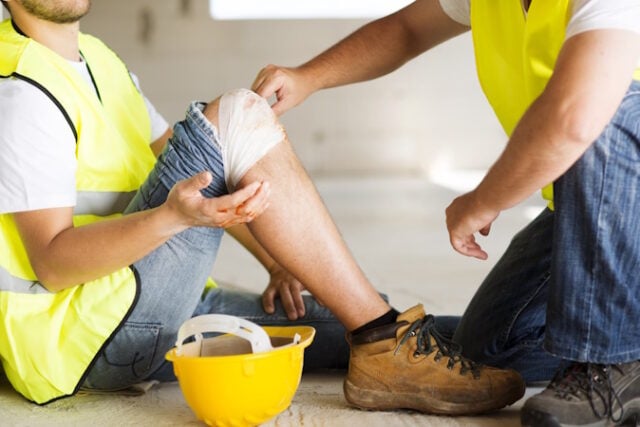
Filing a personal injury lawsuit involves multiple stages, from filing the claim and gathering evidence to negotiating settlements or going to trial. In 2012, Florida saw 62,541 hospitalizations for nonfatal slip and fall injuries, many of which happened in places like Fort Lauderdale and led to legal claims seeking compensation for damages like medical bills and lost wages.
Working with a Fort Lauderdale personal injury lawyer ensures you are prepared for every step of the process. Your lawyer will handle the paperwork, negotiate with insurance companies, and represent your interests in court if needed, providing the support you need for a successful outcome.
This guide sheds light on the steps involved and provides a glimpse into the potential experiences one might face on this path.
First Assessment of the Situation
The process starts with a meeting where individuals consult with personal injury experts to discuss the specifics of their situation. This discussion is important in evaluating the legitimacy and possible worth of the claim. Legal representatives typically collect details about the event, injuries suffered, and any pertinent paperwork. This step is vital for both sides to determine if pursuing the case is an option.
Initiating the Complaint Process
After deciding to proceed with the case, the plaintiff must submit a complaint in court to initiate proceedings against the accused party (defendant). This written document formally presents the plaintiff’s claims and grievances while specifying the damages endured. The desired compensation amount is sought in the lawsuit filing process to prompt a response from the defendant party.
The Discovery Phase
During the discovery phase of proceedings or cases, there is an exchange of information between the parties involved. This includes gathering evidence like medical records, witness statements, and other relevant documentation. Depositions may also occur during this period, where lawyers can question witnesses under oath. This phase plays a role in constructing a case as it uncovers the merits and shortcomings of each party’s arguments.
Talks to Reach a Resolution Through Agreement
Numerous cases involving injuries are often resolved through mediation or settlement talks. In mediation sessions led by a third-party mediator, participants engage in discussions with the goal of reaching an agreement. Alternatively, settlement negotiations take place directly between the plaintiff and the defendant’s legal representatives, with the objective of reaching a compensation agreement that meets both parties’ needs and potentially avoiding court proceedings.
Getting Ready for a Trial
If an agreement cannot be reached out of court and settlement talks fail, the case moves to trial. During this phase, attorneys on both sides prepare by planning strategies, reviewing evidence, and organizing witness testimonies. This stage is critical as it lays the foundation for presenting a strong argument before a judge or jury.
The Process of a Trial
In a trial setting, both parties share their viewpoints with a judge or jury. The opening statements offer a summary of the case, followed by the introduction of evidence and witness statements. Cross-examinations aim to question the reliability of witnesses, whereas closing arguments encapsulate each side’s stance. The verdict of the trial depends on the quality of the evidence and the effectiveness of the arguments.
Verdict and Potential Appeals
Once all evidence has been heard in court and considered by the judge or jury members present, a verdict is given out. This aims to decide whether the defendant should be held responsible for the injuries suffered by the plaintiff. It also determines the amount of compensation to be awarded if applicable. In these situations, either party involved may opt to challenge the verdict. The appeal process entails a thorough review of the trial proceedings to guarantee fairness and accuracy, possibly resulting in a retrial with a different conclusion.
Post-trial Issues to Address
After a decision is made in court cases and trials conclude successfully, other tasks may come up. These include receiving the granted payment, dealing with any claims, and handling attorney fees appropriately to ensure everything is settled smoothly for the case’s resolution.
Knowing what to anticipate during a personal injury lawsuit can alleviate worries and give individuals a sense of control throughout the journey, every step of the way. Everything from the first meeting to dealing with matters after the trial contributes significantly to reaching a result. Even though the process might appear overwhelming at times, being well-informed and ready can have an impact. By seeking advice and actively participating in the process, people can navigate this tough road toward justice and healing with confidence.
Disclaimer
The information contained in South Florida Reporter is for general information purposes only.
The South Florida Reporter assumes no responsibility for errors or omissions in the contents of the Service.
In no event shall the South Florida Reporter be liable for any special, direct, indirect, consequential, or incidental damages or any damages whatsoever, whether in an action of contract, negligence or other tort, arising out of or in connection with the use of the Service or the contents of the Service. The Company reserves the right to make additions, deletions, or modifications to the contents of the Service at any time without prior notice.
The Company does not warrant that the Service is free of viruses or other harmful components












